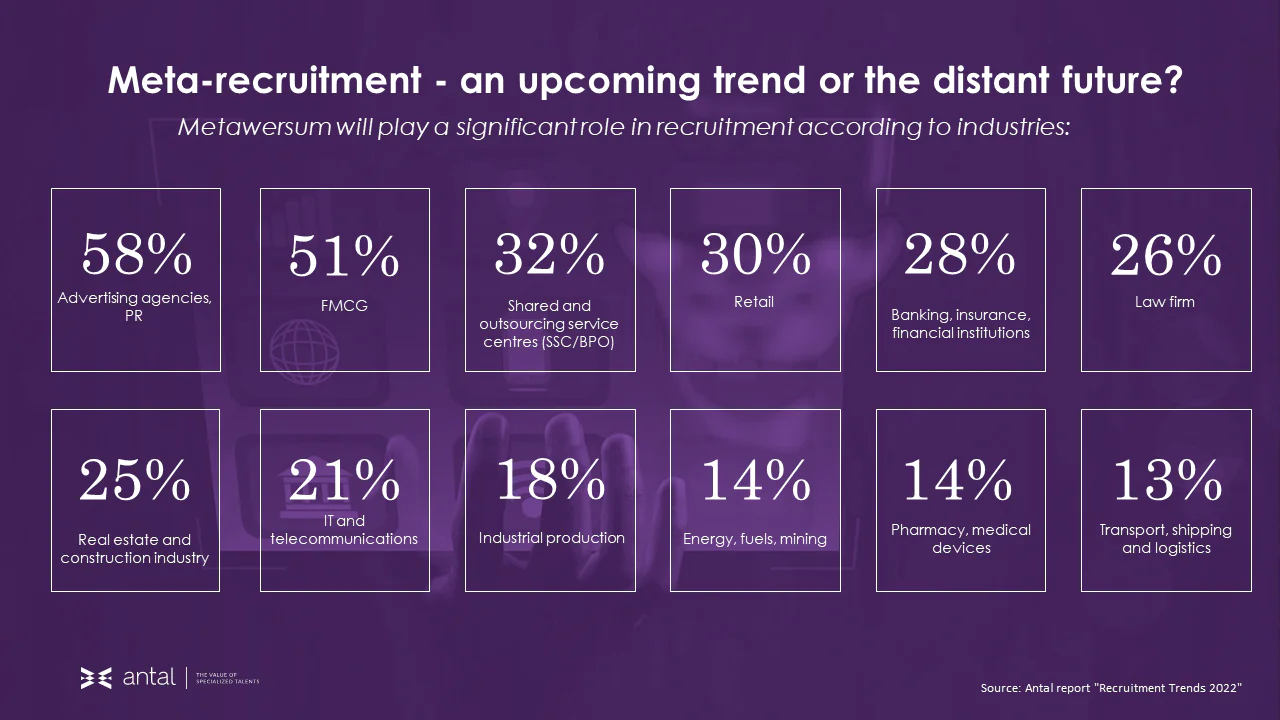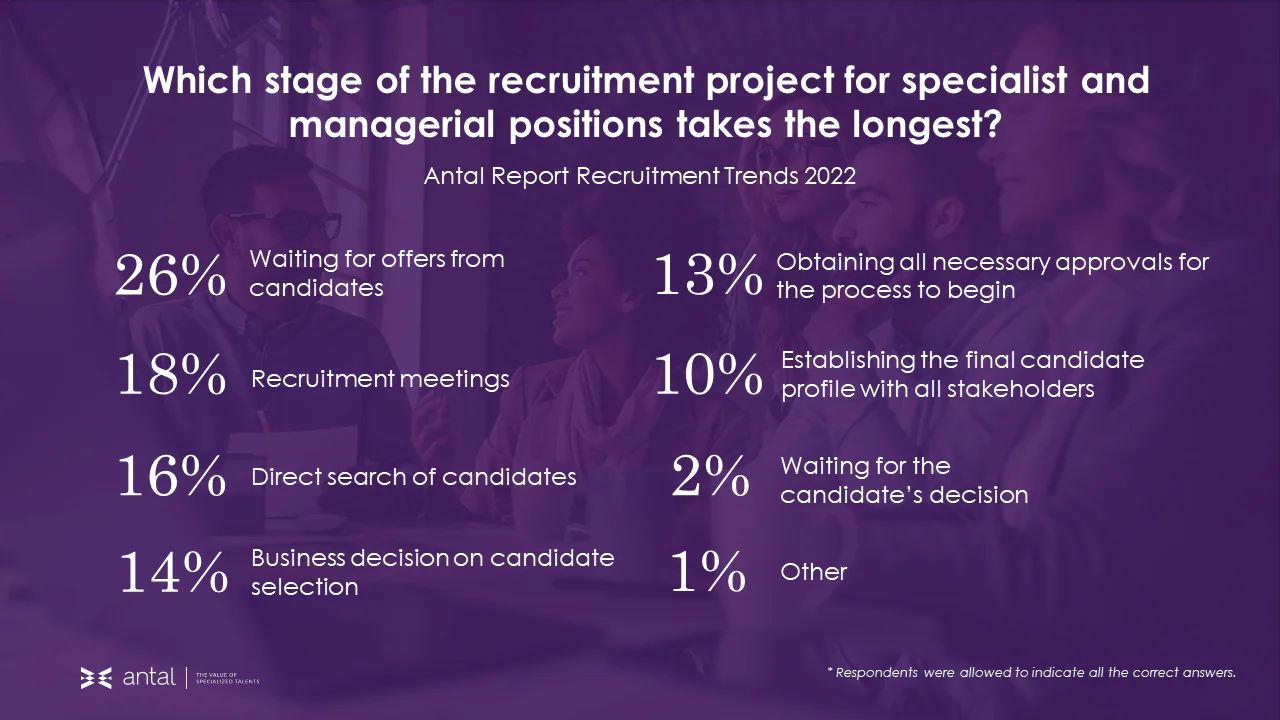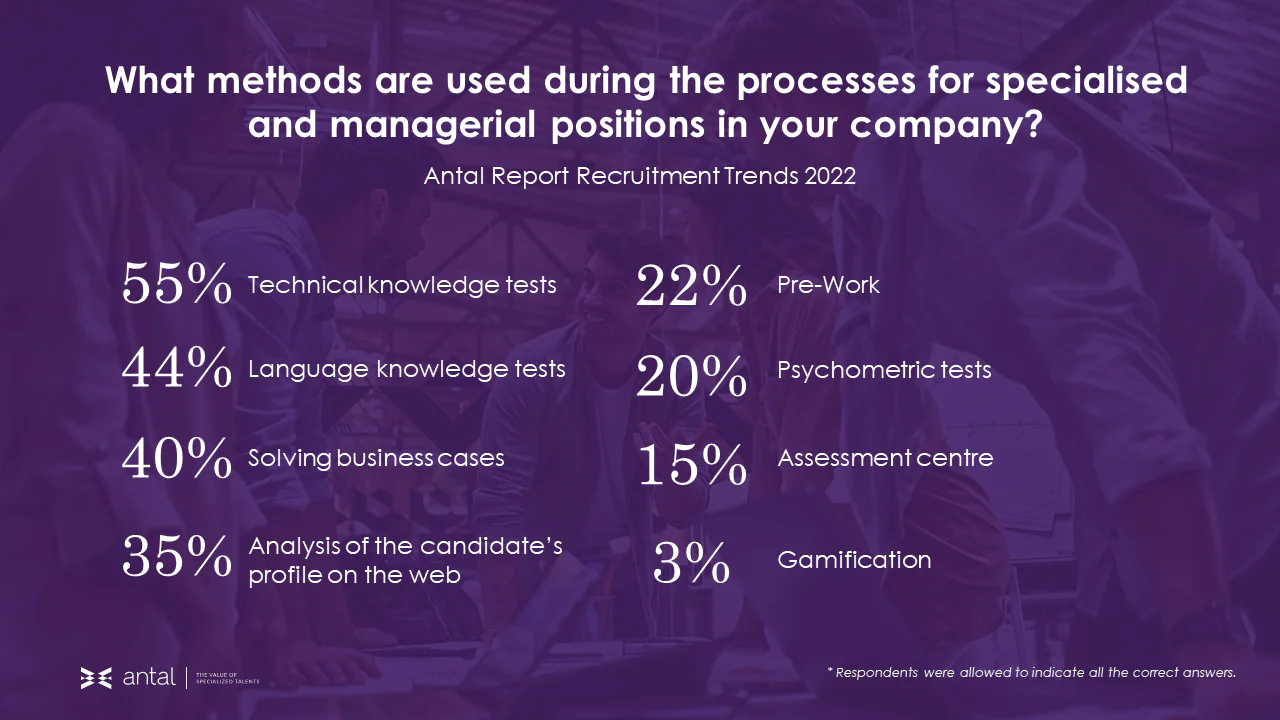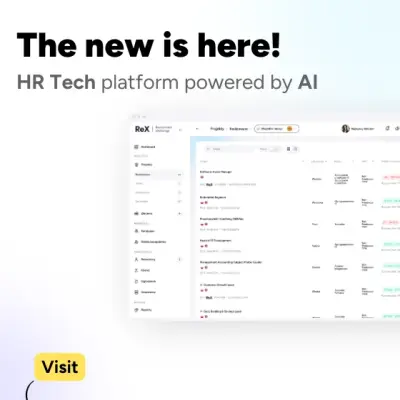What is the future of recruiting? The most important trends in the labor market
Table of contents
Antal, during the European Forum for New Ideas (EFNI), published the latest report "Recruitment Trends 2022". It shows that as many as 78% of respondents responsible for human capital management estimate that in the future more than 10% of recruitment processes will be carried out in the metaverse.
Management Boards are increasingly wondering if and how to take into account the opportunities offered by the metaversum in their strategy. In addition, more and more projects are based on cooperation within contracting - not only in the IT industry, but also in SSC / BPO, production and administration. There is also a growing interest in the recruitment process outsourcing service, which allows for the full care of an external company over the recruitment process. What are the other trends on the market?
Meta-recruiting - the nearest trend or the distant future?
Almost ⅓ of respondents believe that the metaverse will play a significant role in recruitment, and almost 40% see potential in virtual reality, while emphasizing that in their opinion it will not be a ubiquitous phenomenon. Only 15% are firmly convinced that virtual reality is not applicable to recruiting.

The majority of employees of advertising and PR agencies (58%) and FMCG (51%) are convinced that the metaverse will play a significant role in recruitment. 58% of law firm representatives strongly support the fact that the metaverse is not applicable in recruitment. More barriers than opportunities are noticed by employees of energy, fuel and mining (43%) as well as transport, shipping and logistics (44%).
It took over a decade to get to the place where the HR industry is currently located. Over the next 10 years, we will witness the further development of new technologies in HR. In this way, the metawiverse is powered while creating new recruitment needs. Already, most of the departments responsible for the area of human capital in companies actively use the available technologies. This also translates into a significant acceleration and shortening of the processes carried out. Companies are looking for a way to optimize activities while increasing the success rate and remaining competitive on the labor market - comments Artur Skiba, President of the Antal Management Board.
The reality of job interviews
Most often, the length of the recruitment process is about 4 weeks. On average, such processes take the longest in the manufacturing, FMCG, banking, insurance and financial institutions industries as well as in law firms. However, the shortest are recruitment processes in advertising and PR agencies and in the energy industry - from 3 weeks to a month.

In response to the question which of the elements of the recruitment project for specialist and managerial positions lasts the longest, the persons conducting the recruitment processes indicate most often the waiting for the receipt of offers from candidates - almost ⅓ of the respondents replied. HR is the most frequently involved in such processes, because in the case of as many as 66% of respondents, HR takes part in the first meeting. Almost half of the respondents indicate that their immediate supervisor also participates in this process.
In the dynamically changing labor market, the duration of the recruitment process also plays an important role. The average length of a project from requesting a vacancy in an organization to hiring a specialist or manager is four weeks. From the perspective of a candidate who is actively looking for a job in the current reality, this time is often too long. It turns out that today the market is won by the one who recruits efficiently and as quickly as possible. And the competition is still big and candidates can choose in the offers - says Aleksandra Jędrzejczyk, Senior Consultant, Antal SSC / BPO.
Necessary range of recruiter tools
The methods most often used during recruitment are: technical knowledge tests (55% of respondents), language knowledge tests - 44% and business task solving - 40%. Gamification is the least frequently used.

Technical and language knowledge tests are the most frequently used methods used during recruitment processes among employees in industries such as: advertising and PR agencies, banking, insurance, financial institutions, pharmacy, medical equipment and FMCG. A significant proportion of respondents (at least 44%) also indicate solving business cases. 42% of retail respondents note that in their organizations, as well as the technical knowledge test, it is important to analyze the candidate's profile on the web.
The recruitment process consists not only of an interview between the employer and the candidate seeking employment. It is often supported by the use of additional tools. Candidates applying for jobs in the IT sector as well as banking, insurance and financial institutions may face the requirement to conduct technical knowledge tests during the recruitment process. People who speak foreign languages and seek employment in companies from the SSC / BPO sector are subjected to tests verifying the level of knowledge of a given language. In addition, people applying for a job in the area of banking, insurance and financial institutions, and who want to work in the FMCG sector, often have to deal with the solution of a sample business case. The results of the above tasks definitely facilitate the decision to hire or reject a given candidate - comments Ilona Wróbel, Team Manager & ReX Leader, Antal SSC / BPO.
About the report
The Antal study "Recruitment trends 2022" was carried out using the CAWI method on a sample of 677 specialists and managers between July 26 and August 14, 2022.
The report can be downloaded: https://en.antal.pl/insights/report/trends-in-the-recruitment-of-professionals-and-managers
















